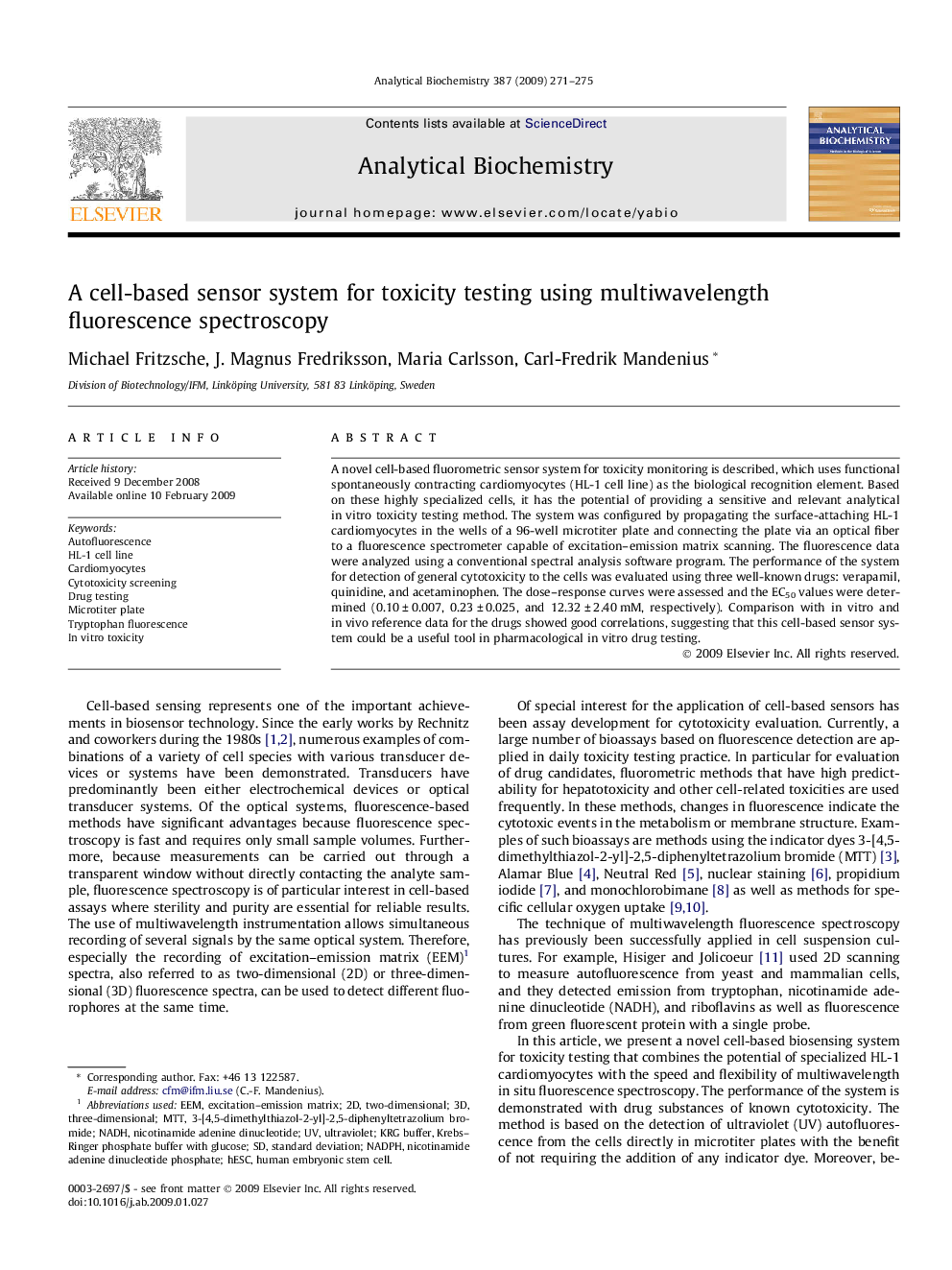| Article ID | Journal | Published Year | Pages | File Type |
|---|---|---|---|---|
| 1175442 | Analytical Biochemistry | 2009 | 5 Pages |
A novel cell-based fluorometric sensor system for toxicity monitoring is described, which uses functional spontaneously contracting cardiomyocytes (HL-1 cell line) as the biological recognition element. Based on these highly specialized cells, it has the potential of providing a sensitive and relevant analytical in vitro toxicity testing method. The system was configured by propagating the surface-attaching HL-1 cardiomyocytes in the wells of a 96-well microtiter plate and connecting the plate via an optical fiber to a fluorescence spectrometer capable of excitation–emission matrix scanning. The fluorescence data were analyzed using a conventional spectral analysis software program. The performance of the system for detection of general cytotoxicity to the cells was evaluated using three well-known drugs: verapamil, quinidine, and acetaminophen. The dose–response curves were assessed and the EC50 values were determined (0.10 ± 0.007, 0.23 ± 0.025, and 12.32 ± 2.40 mM, respectively). Comparison with in vitro and in vivo reference data for the drugs showed good correlations, suggesting that this cell-based sensor system could be a useful tool in pharmacological in vitro drug testing.
